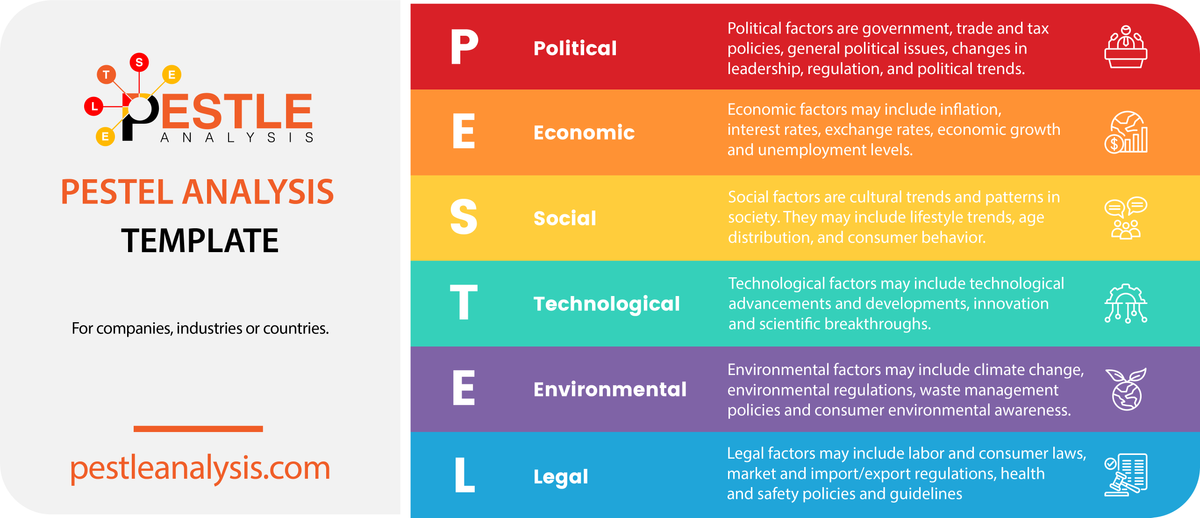According to this SWOT analysis of the UK, the country seems to be in a fairly good, however still suboptimal economic position right now.
In this article, we’ll be carrying out a SWOT analysis on the United Kingdom, which we just finished a PEST analysis on last week.
SWOT analyses look at the Strengths, Weaknesses, Opportunities, and Threats of a business venture, company or even – as in this case – a country (or at least its economic opportunities)! This analysis will provide insight into the future success or failure of the country’s economic situation, and help to identify factors which might affect it along the way.

UK's Strengths
Identifying the strengths is the first step in any SWOT analysis. The UK has a relatively strong position in today’s global markets, supported mainly by the following aspects:
- Advantageous Trading Position: The United Kingdom has an established place in the global markets, holding good relations with both importers and exporters.
- Strong Tertiary Industry: The UK has scores of well-educated individuals who provide value in tertiary, service-based industries. [1]
- High Standard of Education: The existing educational standards are of a good quality, despite further education being relatively expensive.
- Plenty of FDI: The UK receives plenty of Foreign Direct Investment from other countries, compared to some European states.
- Political Stability: Like most More Economically Developed Countries, the United Kingdom has achieved seemingly national political stability.
UK's Weaknesses
The weaknesses are the only other internal factor discussed in a SWOT analysis. In the case of the country under discussion, some of the drawbacks include:
- Poor Transport: The UK is known for its poor transport systems, especially industrial ones. This is to some extent a result of a high population and lots of industry, but still acts a weakness. [2]
- Suboptimal Innovation: Compared to the United States or some areas in Central Europe, the UK has a poor level of innovation, and trails other countries in creation and production processes.
- Significant Internal Wealth Disparity: The United Kingdom has a growing disparity in the affluence of its poorer and more wealthy individuals. [3]
UK's Opportunities
The first external factor in a SWOT analysis, the opportunities, are the potential ventures that might be pursued for any form of gains, financial or otherwise. For England, Wales, Scotland and Northern Ireland, these are:
- New Trade Partners: More lenient trade rules are springing up all over Europe, the Middle East and Asia, which is good news for the UK, who might be able to find new trade partners.
- Riding Tech Waves: If the UK can create tech growth hubs similar to those across the United States, it might get a much fairer slice of the tech market.
- Migrant Education: The United Kingdom’s current population has a significant number of first-generation migrants, who often work in less skilled fields. With the next generation of very cosmopolitan Brits, the UK could build a much more intelligent population with good education.
UK's Threats
Threats are the final factor in any SWOT analysis. Just as the name suggests, these factors are opposite to opportunities – that is to say, possible negative forces. For the United Kingdom, these might be:
- Competition: Many of Europe’s nations are working hard to reach levels of development and wealth similar to those in the UK. When this happens, the UK will have to directly compete with other countries, especially in the services industries.
- Worker/Business Relocation: The United Kingdom’s almost overcrowded, expensive nature is not a positive for most individuals and businesses, who might move elsewhere in the hopes of finding lower overhead costs.
- Financial Crisis: Just like any other country, the UK has to consider the threat of a financial crisis, which could be triggered by events across the world (the end of China’s development boom, or a US recession).
In conclusion, the UK seems to be in a fairly good (however still suboptimal) economic position right now, but has to reckon with the ever-increasing competition presented by other nearby countries. If the United Kingdom can build a broader reach, educate its (incoming) population, and spark high-end innovation processes, then it might find itself in a very favorable position, come a decade or two.
[1 ]http://www.economicshelp.org/tertiary-service-sector/
[3] https://www.equalitytrust.org.uk/scale-economic-inequality-uk



